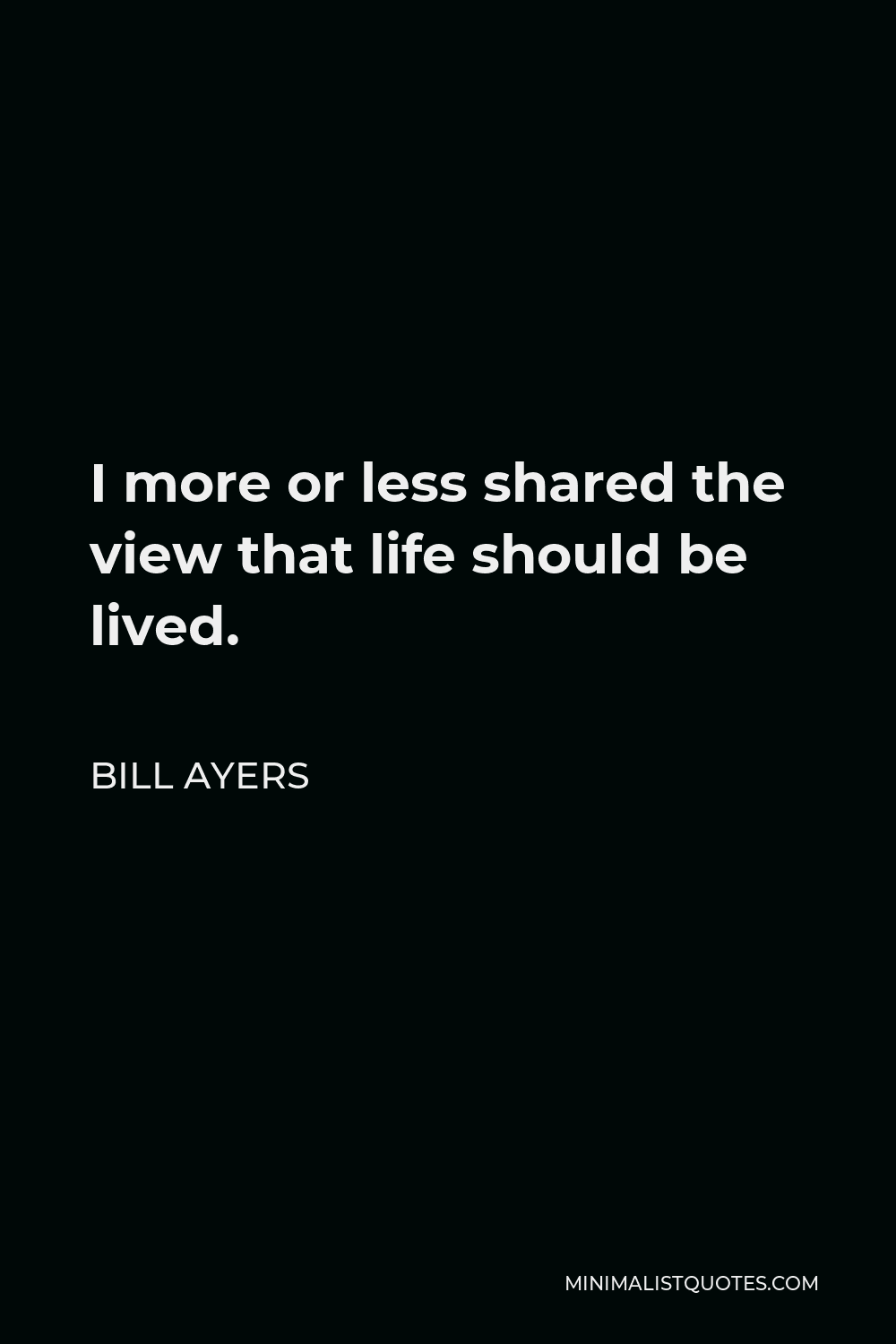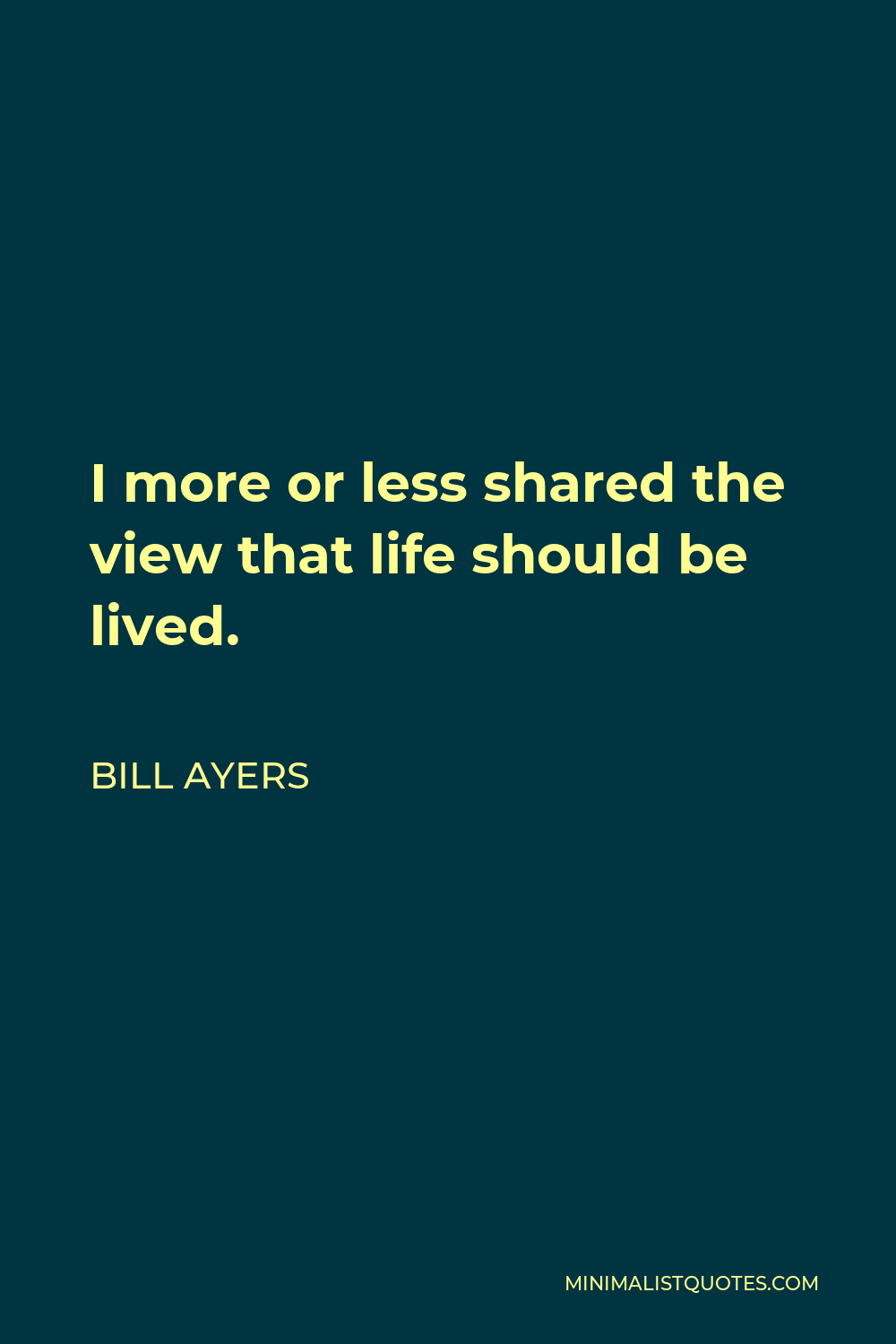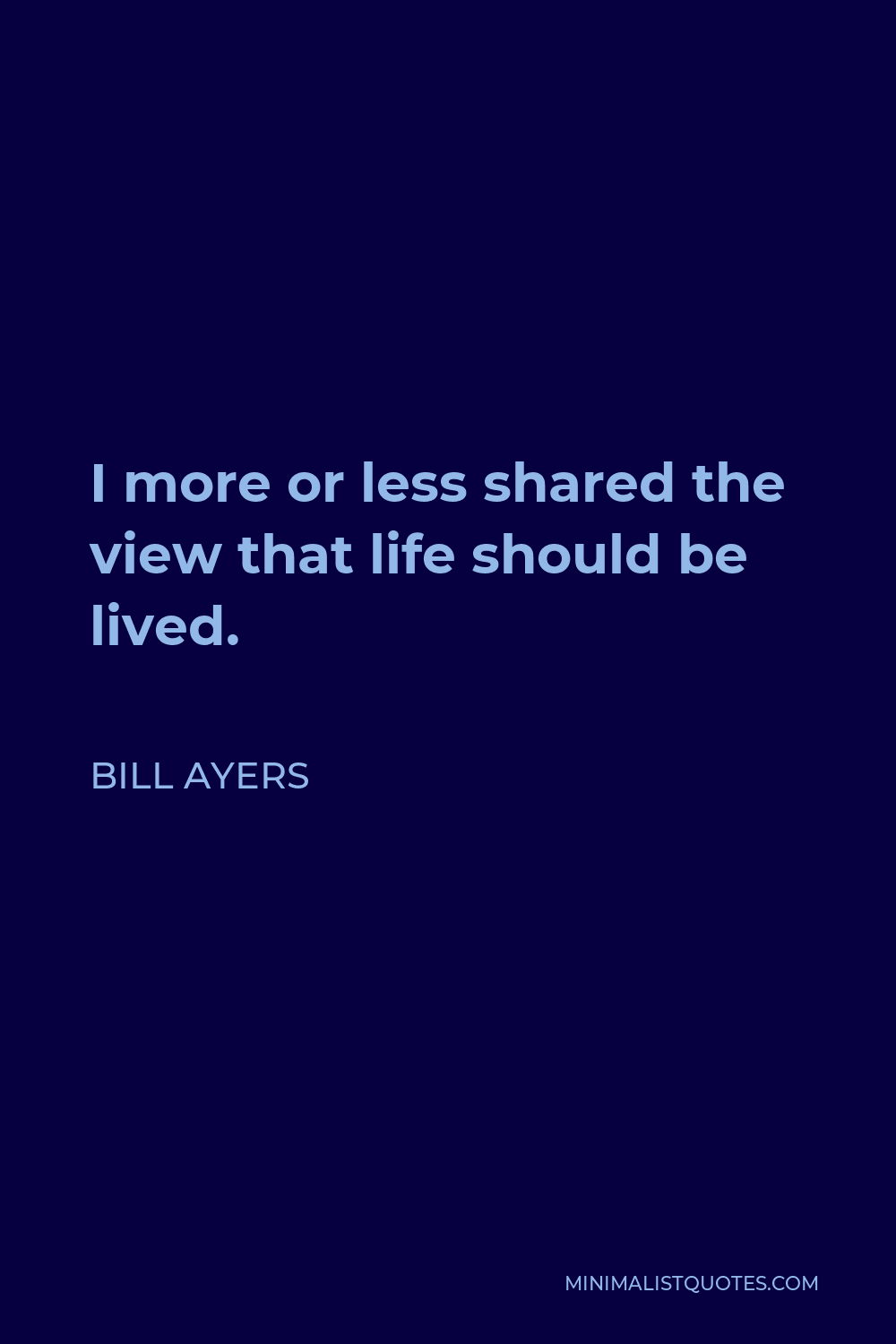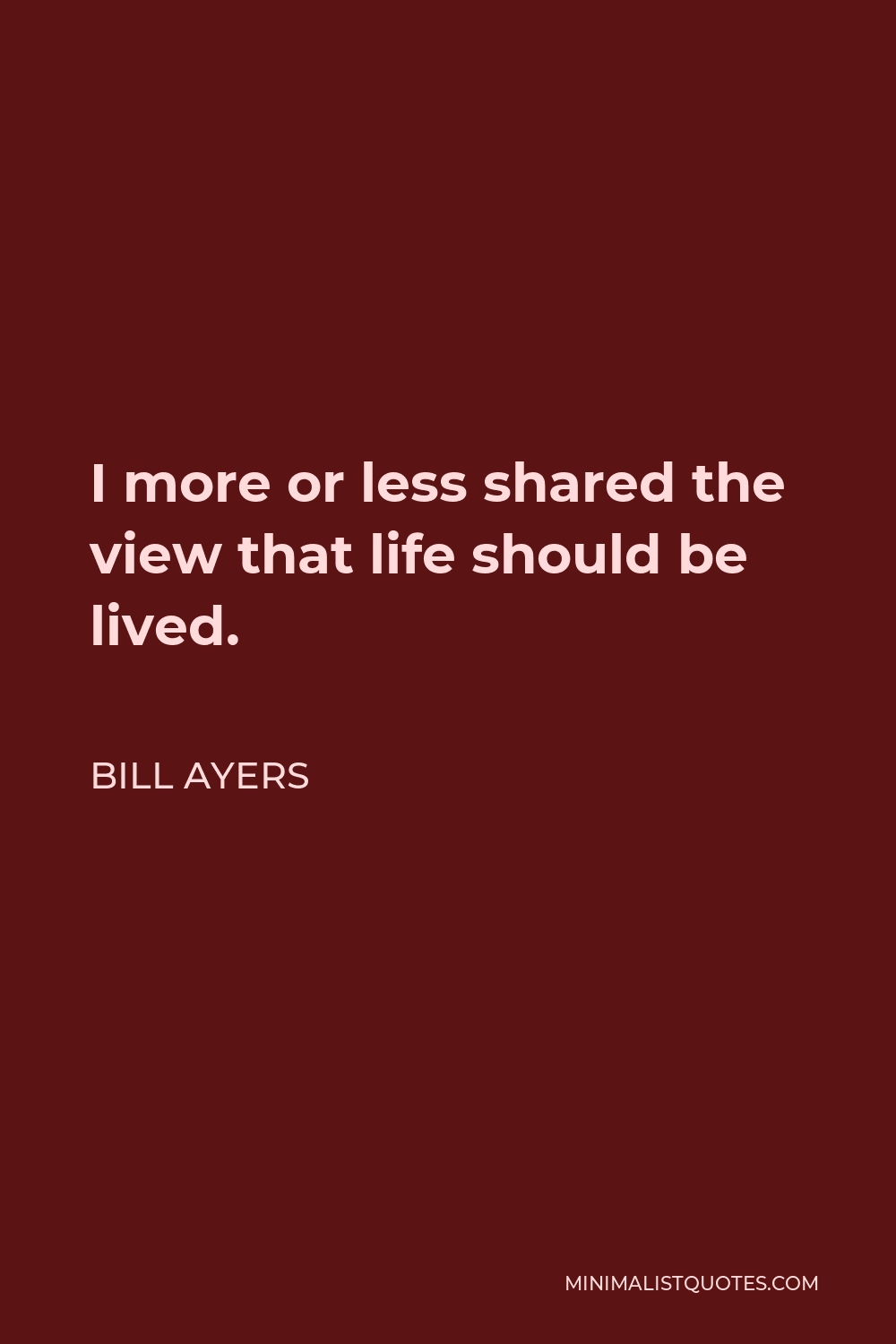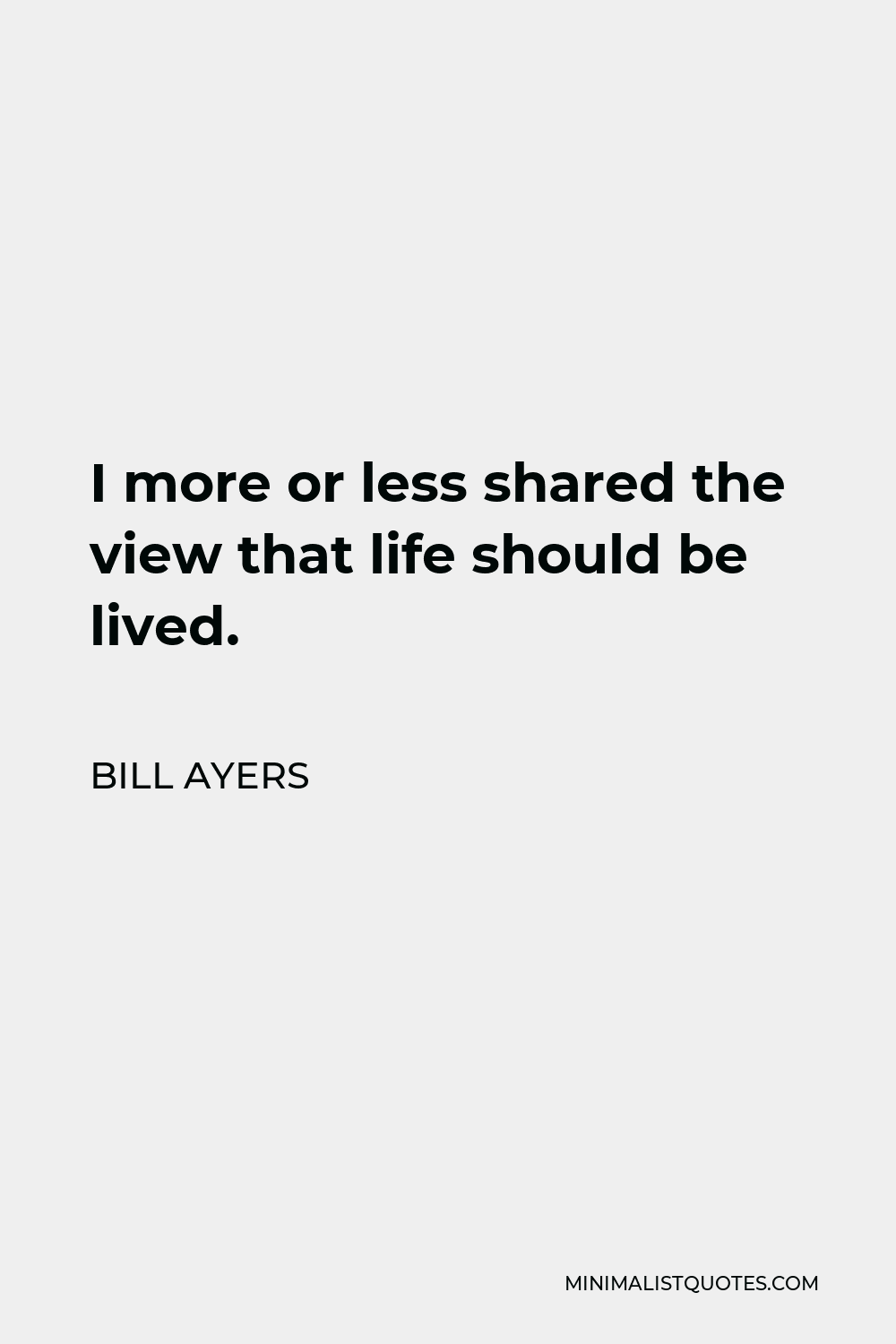I was arrested in 1965 for opposing the war in Vietnam. There were 39 of us arrested that day. But thousands opposed us. And the majority of the people in the country supported the war then.
BILL AYERSI more or less shared the view that life should be lived.
More Bill Ayers Quotes
-





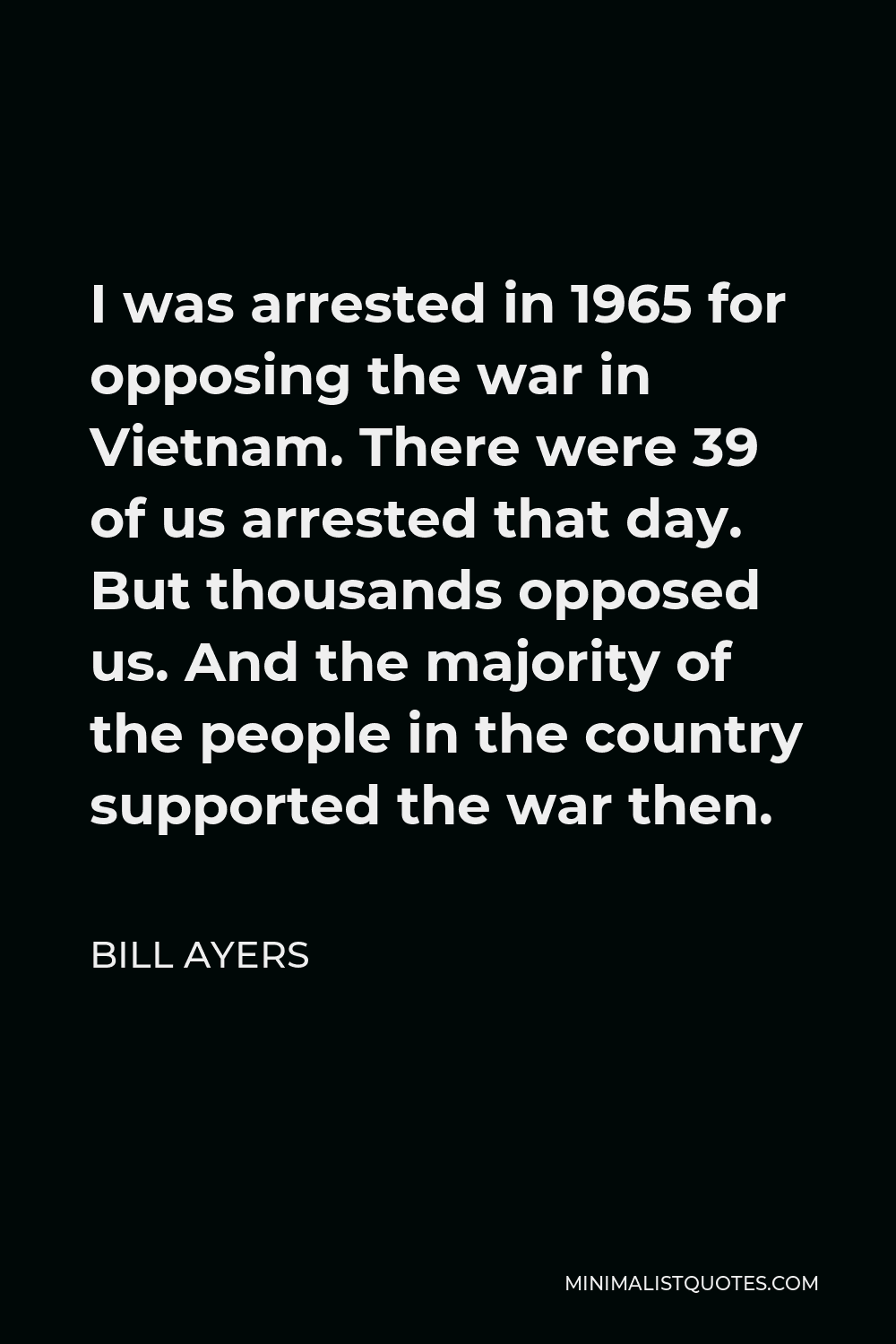
-





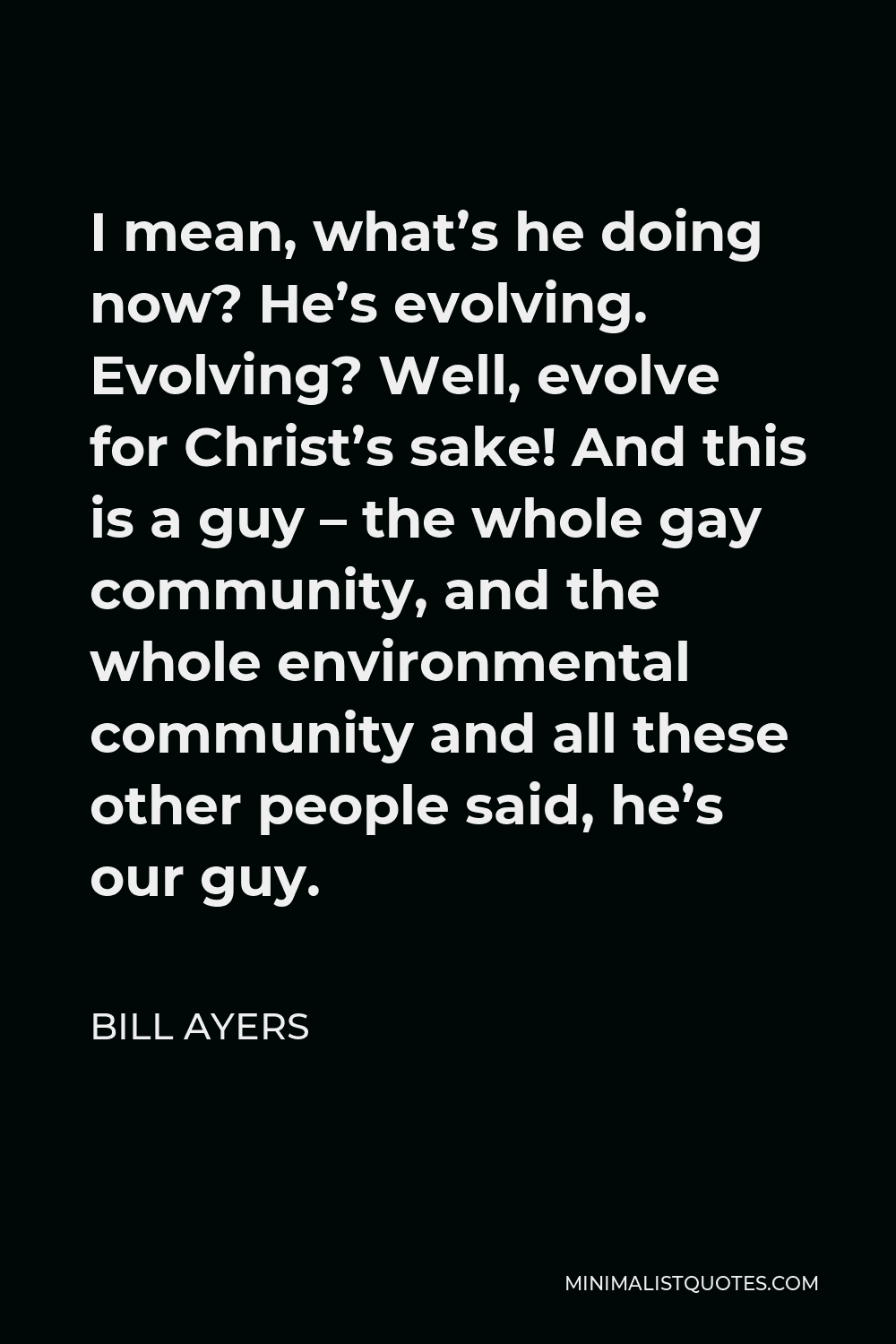
I mean, what’s he doing now? He’s evolving. Evolving? Well, evolve for Christ’s sake! And this is a guy – the whole gay community, and the whole environmental community and all these other people said, he’s our guy.
BILL AYERS -





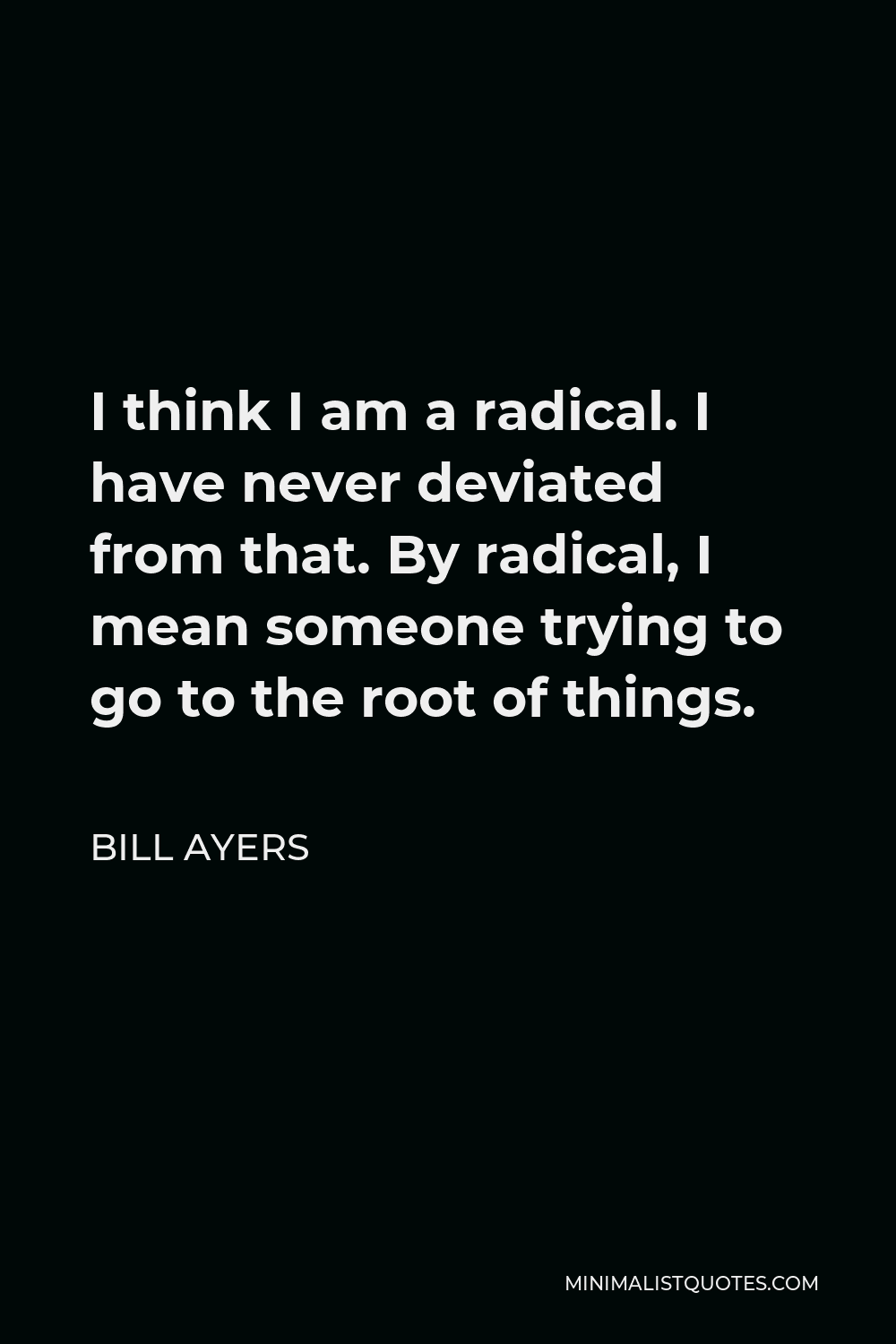
I think I am a radical. I have never deviated from that. By radical, I mean someone trying to go to the root of things.
BILL AYERS -





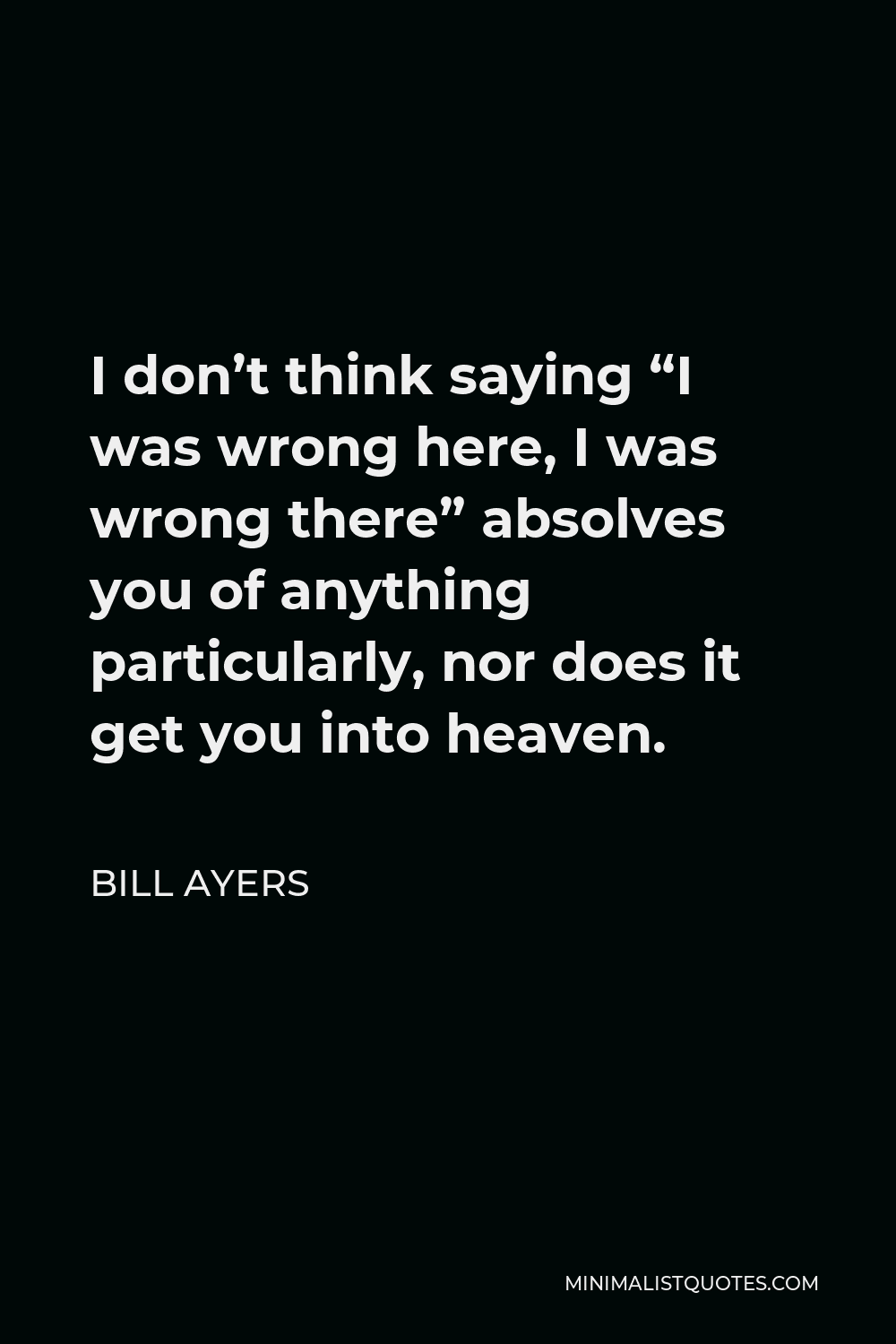
I don’t think saying “I was wrong here, I was wrong there” absolves you of anything particularly, nor does it get you into heaven.
BILL AYERS -





![Bill Ayers Quote - [Barack Obama] was running for Senate and he’s saying, I’m not for gay marriage because I’m a Christian. Jump off a bridge! I mean what the hell are you talking about? You know,](https://minimalistquotes.com/images/barack-obama-was-running-for-senate-and-hes-saying.jpg)
[Barack Obama] was running for Senate and he’s saying, I’m not for gay marriage because I’m a Christian. Jump off a bridge! I mean what the hell are you talking about? You know,
BILL AYERS -





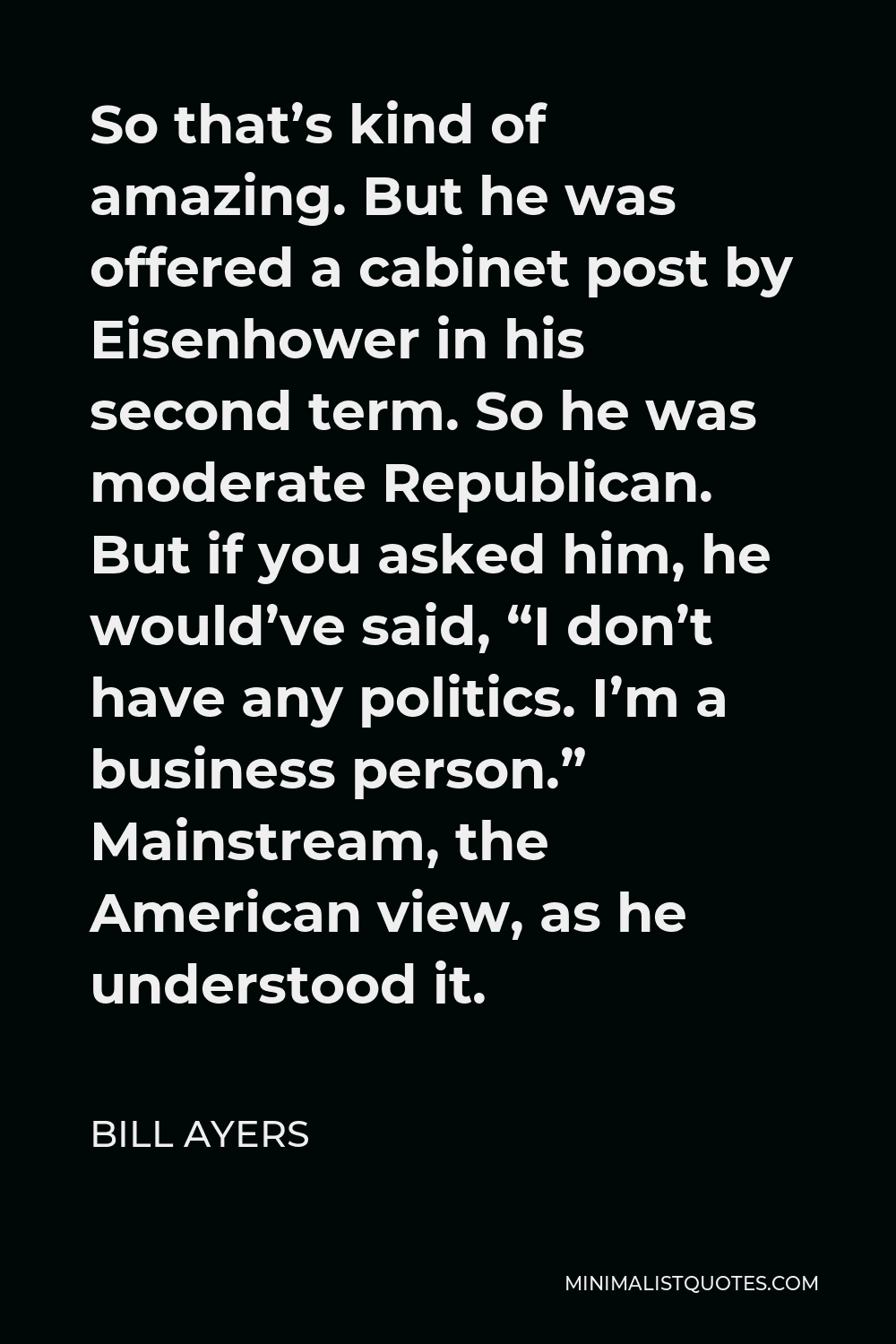
So that’s kind of amazing. But he was offered a cabinet post by Eisenhower in his second term. So he was moderate Republican. But if you asked him, he would’ve said, “I don’t have any politics. I’m a business person.” Mainstream, the American view, as he understood it.
BILL AYERS -





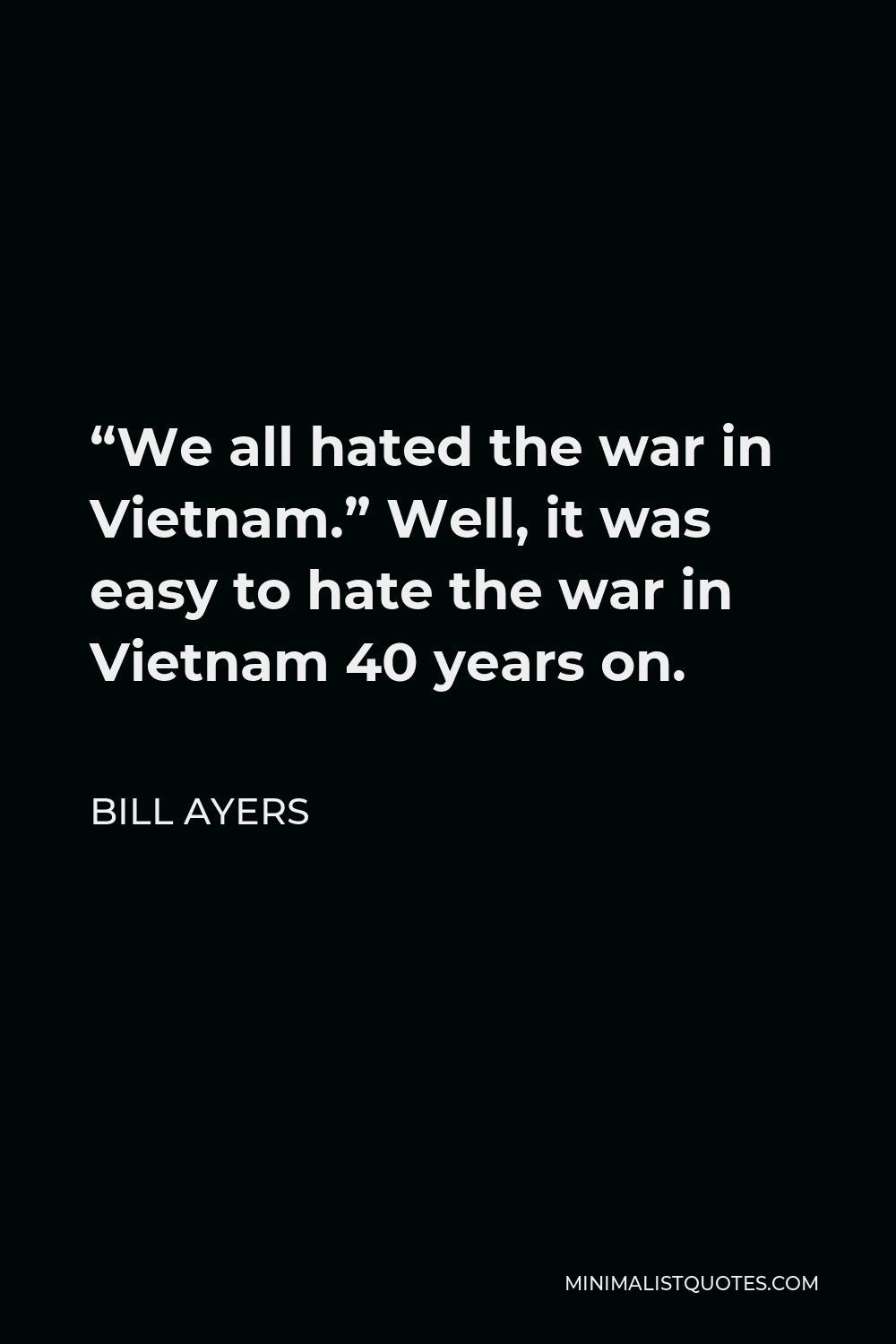
“We all hated the war in Vietnam.” Well, it was easy to hate the war in Vietnam 40 years on.
BILL AYERS -





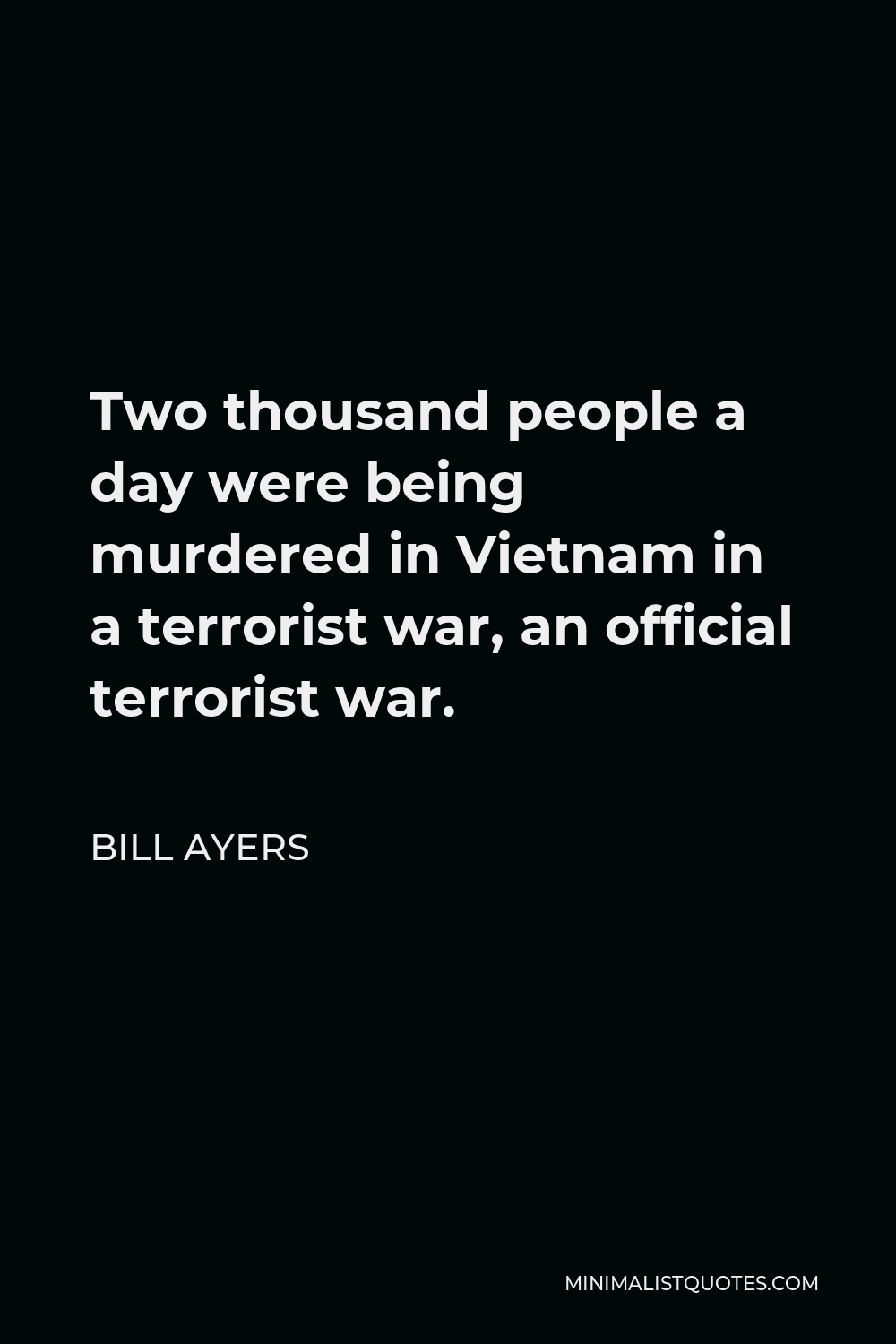
Two thousand people a day were being murdered in Vietnam in a terrorist war, an official terrorist war.
BILL AYERS -







Terrorists destroy randomly.
BILL AYERS -





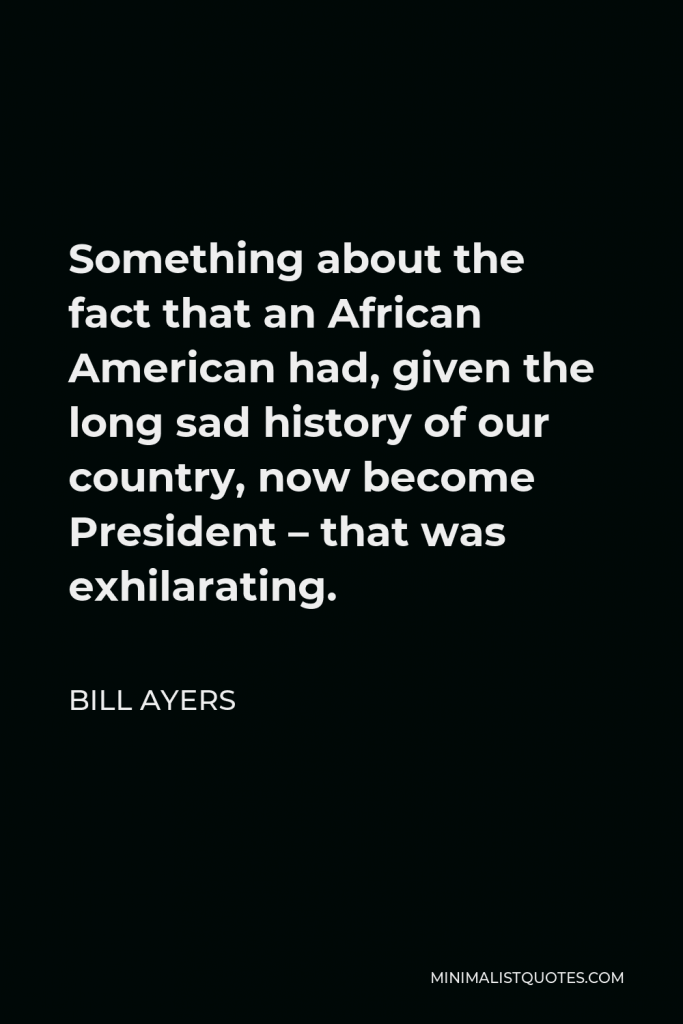

Something about the fact that an African American had, given the long sad history of our country, now become President – that was exhilarating.
BILL AYERS -





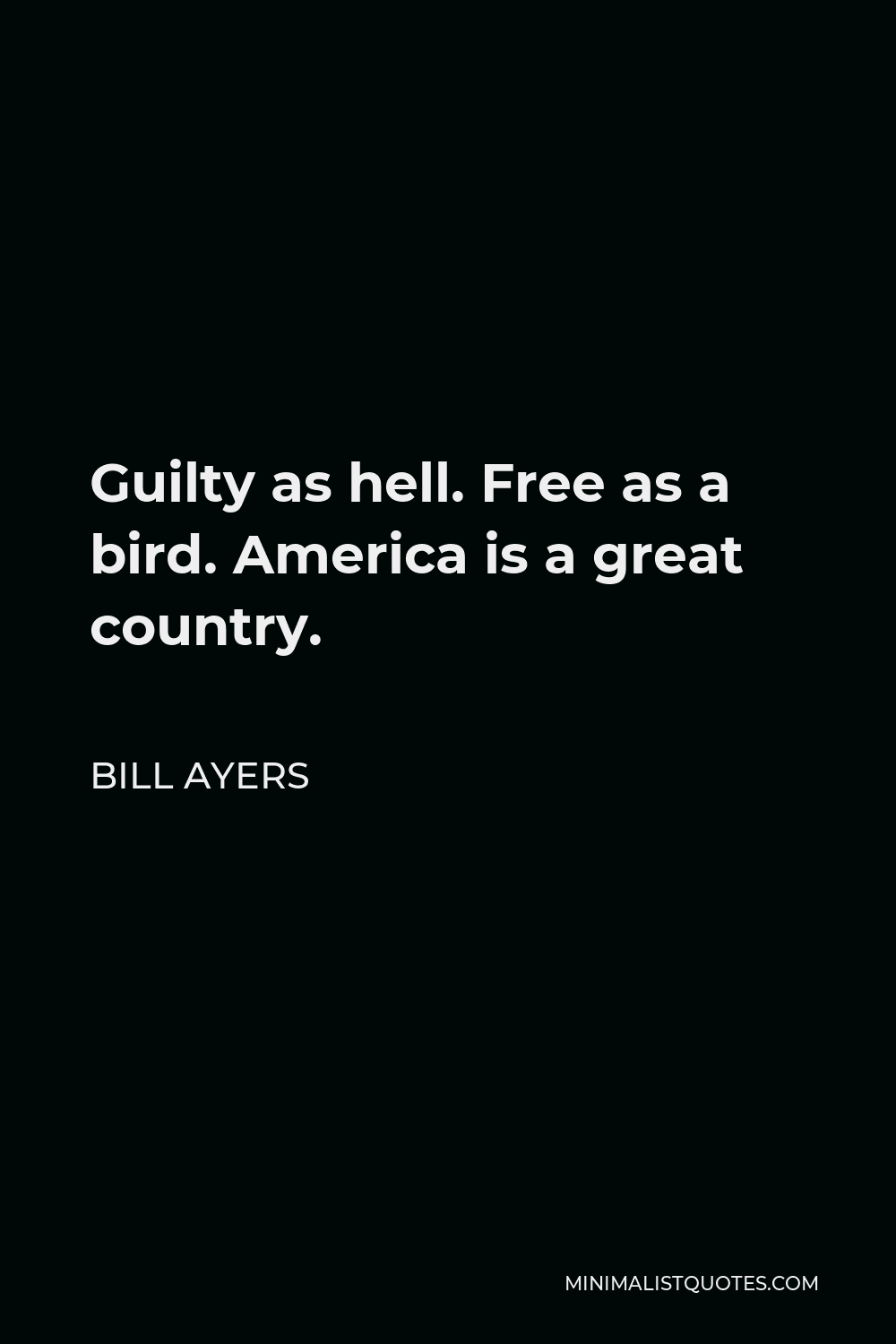
Guilty as hell. Free as a bird. America is a great country.
BILL AYERS -





![Bill Ayers Quote - After I had known [Barack Obama] for a while, I remember saying to my partner, “You know, this guy is really ambitious, I think he wants to be Mayor of Chicago.” That was the limit of my imagination.](https://minimalistquotes.com/images/after-i-had-known-barack-obama-for-a-while-i-remem.jpg)
After I had known [Barack Obama] for a while, I remember saying to my partner, “You know, this guy is really ambitious, I think he wants to be Mayor of Chicago.” That was the limit of my imagination.
BILL AYERS -





![Bill Ayers Quote - Everyone who knew [Barack] Obama from being in Hyde Park knew he was the smartest guy in any room he walked into; a decent, compassionate, lovely person; pragmatic, middle-of-the-road and ambitious.](https://minimalistquotes.com/wp-content/uploads/2022/12/everyone-who-knew-barack-obama-from-being-in-hyde--683x1024.jpg)

Everyone who knew [Barack] Obama from being in Hyde Park knew he was the smartest guy in any room he walked into; a decent, compassionate, lovely person; pragmatic, middle-of-the-road and ambitious.
BILL AYERS -





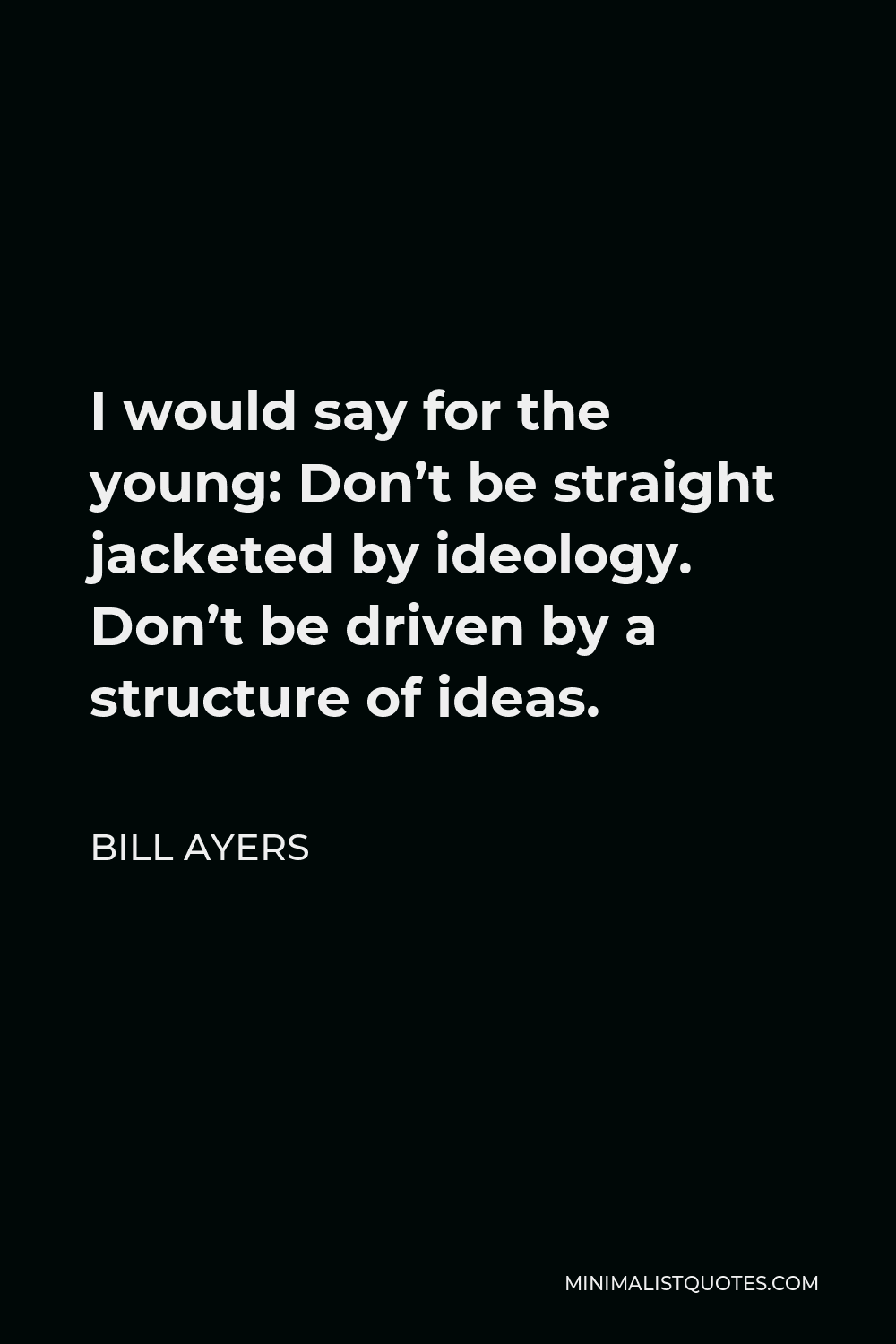
I would say for the young: Don’t be straight jacketed by ideology. Don’t be driven by a structure of ideas.
BILL AYERS -





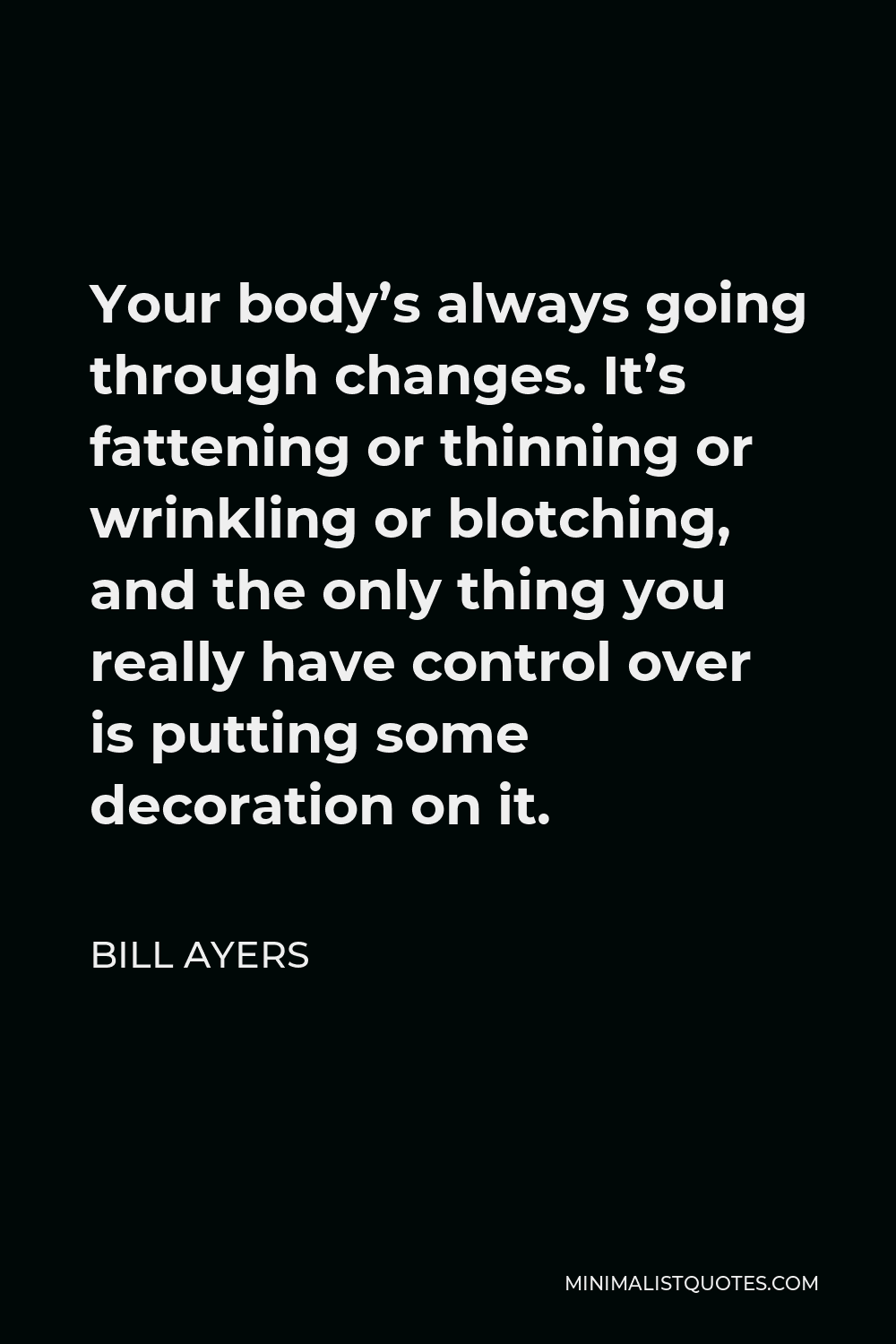
Your body’s always going through changes. It’s fattening or thinning or wrinkling or blotching, and the only thing you really have control over is putting some decoration on it.
BILL AYERS -






I taught. I lectured at universities. I spoke to my students. I spoke in certain public forums. But what I didn’t do was respond to microphones being thrust in my face and saying, what is your relationship with Obama and are you an unrepentant terrorist?
BILL AYERS
